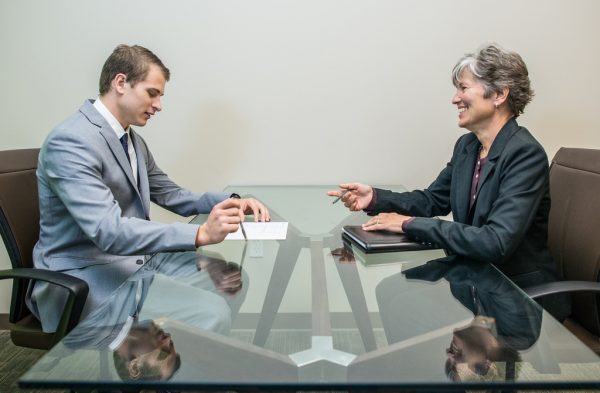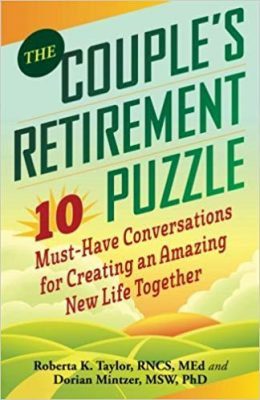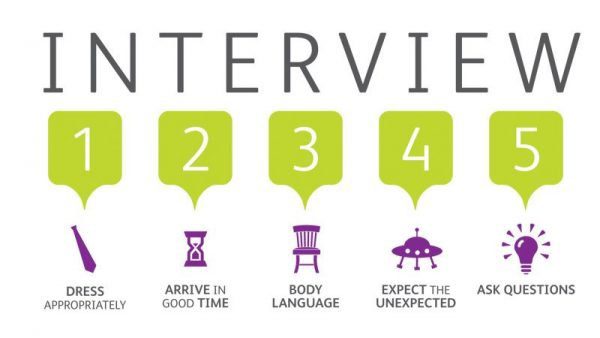Are you a career practitioner? Do you provide career information or services to others?

Sign up for the “Top 10 Tips When Working With an Undecided Person”
Are you a career practitioner? Do you provide career information or services to others?

Sign up for the “Top 10 Tips When Working With an Undecided Person”
Well, I did. So I created a survey and asked career practitioners and recruiters what they thought. Here is what I learned.

By far candidates not doing the research on the company was the number 1 of 5 interview mistakes. “It’s only a phone interview, I will wing it” was one quote that was shared in the survey. This continues to amaze me as there are so many ways to research a company now: company website, Facebook, Twitter, Instagram, LinkedIn, and more. Yes, this takes time but it is clearly one way to set yourself apart from the rest of the people when you do it.
Career Practitioner tip: Help your clients see the importance and benefits of the research — and doing it well.
What should they be looking for?
Preparing for the interview entails a number of things from really reflecting on what the company is looking for, anticipating interview questions and your answers, to working on articulating how you solve their problems. Too many candidates did not read the job description closely enough for skills and expectations. Once you know what the employer is looking for, then you must be able to articulate your skills to solve their “pain points”. Often candidates simply can not “sell” his/her talents and skills to the interview team clearly enough to convince them to hire him/her.
Career Practitioner tip: Work with your clients to clearly define the top five or six essential skills they have to offer the company. Each person is unique and often cannot see their own strengths. “This is easy…everyone can do this.” “Nope, no one can do it like you” is my response. (Check out my webinar on Developing Value-Added Statements for Your Clients).
It is not what the candidate gains from the position, but what the candidate brings to the company. (Back to the value-added statement). Our clients really need to think about this position from the employer’s point of view. Put themselves in the shoes of the interviewers and reflect on what they are looking for. And then give it to them. When working with college students, I was constantly hearing them say in their mock interview, “I will get so much out of this internship.” Wrong. Most employers don’t care what you will get out of this. They want to know what value you bring. Even interns are expected to add value to their experiences.
Career Practitioner tip: Help your clients change their perspective of the process and really try and understand what the company and the interviewers are looking for. Focus on their 5 or 6 essential skills that add value to the company, in particular identifying where those skills solve company “pain points”.
Behavioral questions are fairly common now. Employers are looking for ‘stories’ that demonstrate your thinking, action, and/or skills you used in the past. If you did good work in the past, you most likely will do similar work in the future. Many interviewers found the candidates not prepared to answer this type of question.
Career Practitioner tip: Work with your clients on having at least 5 stories of accomplishments or successes that highlight their skills told in the SAR model (Describe the Situation, the Action steps, and the Results). These are also called STAR or PAR models. Many of these stories can be adapted to answer a wide variety of questions. This article at The Muse is a great place to start practicing answers to some common behavioral questions. (The Muse).
This was an interesting one where people were either:
Career Practitioner tip: Mock interviews are so important for many people. We need to make sure our clients are sending the message that they are sensitive to and aware of company culture. We need to encourage our clients to do their research on the company across all their social media platforms. (Proper Planning Prevents Poor Performance).
Here are few of the other common mistakes that were mentioned by a few people:
NOTE: Special thanks to all of you who completed my survey on interviewing which was the core of this blog, and my blog on interview trends.
Watch this Peak-Careers interview with two professionals discuss trends and common interviewing mistakes they see. (Watch the interview)
Read my other blogs on interviewing here.
Jim Peacock is the Principal at Peak-Careers Consulting and writes a monthly newsletter for career practitioners. Peak-Careers offers discussion-based online seminars for career practitioners focused on meeting continuing education needs for CCSP, GCDF and BCC certified professionals as well as workshops for career practitioners and individual career coaching.
Sign up here to receive my TOP 10 TIPS WHEN WORKING WITH AN UNDECIDED PERSON. You can also receive the career practitioners newsletter which includes a variety of career topics, industry news, interesting events, and more.


I have known Dori Mintzer for awhile now and in the fall of 2017 I finally had the pleasure to meet her in person. We were both presenters at a Boomer Conference in Portland Maine. We had a wonderful lunch sitting outdoors enjoying a beautiful fall day.
She gave me this book and signed it for me “Enjoy your journey“.
Dori and Roberta have written a very upbeat, optimistic, practical book for anyone approaching retirement or in retirement now. Their advice is all based upon breaking this time of our lives down into essential parts and then communicating with our partners.
The cornerstone of their advice is communication and at the end of each chapter are prompts to talk through the essential topic of that chapter. First time alone to write and process. And then time together to listen, really listen and understand what your partner is saying and thinking. Then to work on a plan -and compromise – if needed.
It ends with a very practical worksheet “Creating Your Shared Vision” and tons of resources to help anyone move beyond the book.
The book covers topics from; If, when, and how to retire; Money; Changing Roles; Relationships; to Choosing where to live, and more. They break each topic down to the essential parts that should be discussed and examples to help you understand the why behind each.
If you are facing retirement soon and want to know what needs to be thought of and discussed, this is a great book that I highly recommend to you.
Read my blogs on Boomers here
Jim Peacock is the Principal at Peak-Careers Consulting and writes a monthly newsletter for career practitioners. Peak-Careers offers discussion-based online seminars for career practitioners focused on meeting continuing education needs for CCSP, GCDF and BCC certified professionals as well as workshops for career practitioners and individual career coaching.
Sign up here to receive my TOP 10 TIPS WHEN WORKING WITH AN UNDECIDED PERSON. You can also receive the career practitioners newsletter which includes a variety of career topics, industry news, interesting events, and more.

Interviewing is one of the final steps in the career process. Learn more about trends and mistakes from my guests Brenda Steeves, Patient Financial Services manager at Maine Medical Center’s Consolidated Billing Office (CBO) and Joe Smith, Senior Recruiter at a large global software company.
– What do you see as interviewing trends?
– What are the biggest mistakes you see happening in interviews?
– What advice do you have for people preparing for an interview?
Look for my blogs on this same topic at Peak-Careers
Brenda Steeves believes in developing others in harmony with their true and innate strengths. She is a Patient Financial Services manager at Maine Medical Center’s Consolidated Billing Office (CBO) where she actively hires all of the associates while managing two teams.
Brenda has a Bachelor’s degree in Business Administration through Husson University and has 19 years of progressive leadership experience. She uses her role as an opportunity to confidently coach, motivate, and encourage.
Joseph Smith “Joe”, is currently a Senior Recruiter at a large global software company where he has college recruiting responsibilities for engineering, computer science, and business job opening. Joe served in the same capacity at MathWorks and ThermoFisher.
Prior to becoming a recruiter, Joe was employed at Northeastern University as an Associate Career Counselor in the Department of Career Services. Here Joe was primarily responsible for the senior transition into the workforce and career fairs. Joe began his career counseling and recruiting career at Salve Regina University where he was responsible for employer development and relations.
Jim Peacock is the Principal at Peak-Careers Consulting and writes a monthly newsletter for career practitioners. Peak-Careers offers discussion-based online seminars for career practitioners focused on meeting continuing education needs for CCSP, GCDF and BCC certified professionals as well as workshops for career practitioners and individual career coaching.
Sign up here ( https://peak-careers.com )to receive my TOP 10 TIPS WHEN WORKING WITH AN UNDECIDED PERSON. You can also receive the career practitioners newsletter which includes a variety of career topics, industry news, interesting events, and more.

First off, thanks to all of you who responded to my survey on interviewing trends sent out in June. The second part of that survey on ‘biggest mistakes in interviewing’ will come out next.

One thing I see in the results of the survey is that things have not changed too much in the past few years. Yet some people are still surprised about the process…and that is not good for them. Helping our clients be prepared for this process is so important.
There are many more interviews being done using Skype or Zoom. There may be an initial phone interview to screen out applicants followed up with a video interview before they bring people to a live interview.
Career Practitioner tip: Make sure your clients are prepared for this type of interview. They need to be made aware of lighting, background, the height of the computer monitor (eye level view), pay attention to noises and possible interruptions.
Many employers are now using tools such as Hirevue which is more of a ‘digital video interview’. They send a link to a site where you have three to five questions to answer in an allotted time frame. You log in, the questions come up, you answer them, and then move on to the next question. You are essentially talking to yourself and recording your answers.
Career Practitioner tip: Just like mock interviews, this is something we should practice with our clients. Talking to ‘no one’ could be very difficult for lots of people. How do you create a positive, emotional, authentic feel when you are simply talking to a screen? Radio DJ’s do this all the time but it takes practice.
As a side note here, engineers and physical science positions are often asked to “whiteboard problems” out so the companies can see the process they are using.
Career Practitioner tip: This is not an area I am familiar with, so I would have to seek assistance with this one. Does anyone have any advice to share on this topic?
[Read more…] about Interviewing Trends You Need To Be Aware OfFor many of us, stress is found in the workplace. But it doesn’t stop there. We often bring it home with us.
[Read more…] about INTERVIEW: Stress in the workplace and what you can do about it.
Sign up for "the Top 10 Tips When Working With an Undecided Person" and also receive a weekly email on a variety of career topics, industry news, interesting events, and more SUBSCRIBE
Sign up here to receive my “TOP 10 TIPS WHEN WORKING WITH AN UNDECIDED PERSON”.
You can also receive our weekly career practitioners email which includes a variety of career topics, industry news, interesting events, and more.
